Bangla Tribune Content Analysis: Distorting History in the Pakistan Debate, India’s Gain
 _x000D_
_x000D_
Propaganda Techniques: Enemy Portrayal and Nationalism_x000D_
- Dehumanizing the Enemy: By highlighting the distortions in Pakistan’s portrayal of the Liberation War, the article creates a negative image of Pakistan. Pakistan is depicted as the enemy that distorts history and presents the Liberation War from its own biased perspective. This can further reinforce negative sentiments towards Pakistan among Bangladeshi readers._x000D_
_x000D_
- Reconstructing National Identity: The report attempts to strengthen Bangladeshi nationalism. By emphasizing the inaccuracies in Pakistan’s version of the Liberation War and asserting the correctness of Bangladesh’s history, the article seeks to reaffirm a national identity. It also bolsters the Awami League’s position as the rightful heir to the Liberation War legacy._x000D_
_x000D_
India’s Role: Soft Propaganda_x000D_
Although the article does not directly mention India’s role, there are subtle hints of soft propaganda:_x000D_
_x000D_
- Selective Omission: The article avoids any criticism of India’s involvement in the Liberation War, perhaps to emphasize the special relationship between India and Bangladesh. India's long-standing effort to position itself as a hero of the Liberation War might be at play here._x000D_
_x000D_
- Framing of Information: By not addressing any negative aspects of India’s role in the war and portraying it solely as a supportive ally, the article may be engaging in soft propaganda aimed at presenting India in a favorable light._x000D_
_x000D_
India’s Distortion of History: Indirect Propaganda_x000D_
India has also strategically used Bangladesh’s Liberation War for its own purposes. While India’s military and political support was undeniably crucial, India sought to achieve broader geopolitical goals through its involvement in the war. India continues to leverage Bangladesh’s political landscape, and this article might be seen as part of that effort._x000D_
_x000D_
Historical Distortion in Indian Textbooks_x000D_
Indian textbooks have often come under scrutiny for how they depict the Liberation War. Many argue that the representation is not always neutral or complete. India’s military and political support is frequently emphasized, but the contributions of Bangladesh’s leaders and the internal political context are often underrepresented. This leads to the perception that the true story of Bangladesh’s struggle for independence is overshadowed. Additionally, some textbooks frame the war within the broader context of regional politics, viewing it through an Indian nationalist lens._x000D_
_x000D_
India’s 2014 film Gunday portrayed the 1971 war as an Indo-Pakistani conflict, further distorting the narrative. Several Indian leaders have also stated that the war was primarily between India and Pakistan._x000D_
_x000D_
The Mystery of Jarin Hossain_x000D_
Jarin Hossain, a media professional and researcher, might be concealing her work and identity for personal reasons. However, Bangla Tribune should have provided more information about her for its readers. Jarin’s mention could have enhanced the credibility of the information provided. One might speculate whether her real identity has been replaced with a fictional character for political or strategic reasons._x000D_
_x000D_
India’s Growing Influence in Bangladesh’s Internal Politics_x000D_
India aims to position itself as a dominant force in Bangladesh’s politics. Propaganda that fosters friendly sentiments towards India helps:_x000D_
_x000D_
- Strengthening Support for the Awami League: India has long supported the current Awami League government. By emphasizing India’s role in the Liberation War and pushing anti-Pakistan narratives, such reports reinforce the Awami League’s position and strengthen India-Awami League ties._x000D_
_x000D_
- Weakening the Opposition: Bangladesh’s opposition parties, especially BNP and Jamaat, are often seen as being pro-Pakistan. Negative portrayals of Pakistan indirectly undermine these opposition parties’ standing. India’s objective is to keep a government in power in Bangladesh that maintains strong strategic and political ties with India._x000D_
_x000D_
Soft Power in Action_x000D_
India has long used its soft power—culture, history, and political influence—in South Asia. By highlighting its role in the Liberation War:_x000D_
_x000D_
- Expanding Indian Soft Power: Presenting India’s positive involvement in the war strengthens its soft power strategy. Reports like these build a favorable image of India among Bangladeshis and position India as a reliable and friendly nation._x000D_
_x000D_
- Strengthening Cultural Ties: India uses the Liberation War as a means to strengthen cultural and historical connections with Bangladesh. Through such propaganda, India extends its cultural dominance and establishes itself as an indispensable part of Bangladesh’s history._x000D_
_x000D_
While we do not know the author of this report, several senior journalists have claimed that before the January 7 election, the articles of a senior female journalist from this outlet were published under the names of ghost journalists like Chandan Nandi, Tarun Chakraborty, and Sangita Senal. This female journalist is also reportedly linked to the Awami League's propaganda group.
_x000D_
_x000D_
Propaganda Techniques: Enemy Portrayal and Nationalism_x000D_
- Dehumanizing the Enemy: By highlighting the distortions in Pakistan’s portrayal of the Liberation War, the article creates a negative image of Pakistan. Pakistan is depicted as the enemy that distorts history and presents the Liberation War from its own biased perspective. This can further reinforce negative sentiments towards Pakistan among Bangladeshi readers._x000D_
_x000D_
- Reconstructing National Identity: The report attempts to strengthen Bangladeshi nationalism. By emphasizing the inaccuracies in Pakistan’s version of the Liberation War and asserting the correctness of Bangladesh’s history, the article seeks to reaffirm a national identity. It also bolsters the Awami League’s position as the rightful heir to the Liberation War legacy._x000D_
_x000D_
India’s Role: Soft Propaganda_x000D_
Although the article does not directly mention India’s role, there are subtle hints of soft propaganda:_x000D_
_x000D_
- Selective Omission: The article avoids any criticism of India’s involvement in the Liberation War, perhaps to emphasize the special relationship between India and Bangladesh. India's long-standing effort to position itself as a hero of the Liberation War might be at play here._x000D_
_x000D_
- Framing of Information: By not addressing any negative aspects of India’s role in the war and portraying it solely as a supportive ally, the article may be engaging in soft propaganda aimed at presenting India in a favorable light._x000D_
_x000D_
India’s Distortion of History: Indirect Propaganda_x000D_
India has also strategically used Bangladesh’s Liberation War for its own purposes. While India’s military and political support was undeniably crucial, India sought to achieve broader geopolitical goals through its involvement in the war. India continues to leverage Bangladesh’s political landscape, and this article might be seen as part of that effort._x000D_
_x000D_
Historical Distortion in Indian Textbooks_x000D_
Indian textbooks have often come under scrutiny for how they depict the Liberation War. Many argue that the representation is not always neutral or complete. India’s military and political support is frequently emphasized, but the contributions of Bangladesh’s leaders and the internal political context are often underrepresented. This leads to the perception that the true story of Bangladesh’s struggle for independence is overshadowed. Additionally, some textbooks frame the war within the broader context of regional politics, viewing it through an Indian nationalist lens._x000D_
_x000D_
India’s 2014 film Gunday portrayed the 1971 war as an Indo-Pakistani conflict, further distorting the narrative. Several Indian leaders have also stated that the war was primarily between India and Pakistan._x000D_
_x000D_
The Mystery of Jarin Hossain_x000D_
Jarin Hossain, a media professional and researcher, might be concealing her work and identity for personal reasons. However, Bangla Tribune should have provided more information about her for its readers. Jarin’s mention could have enhanced the credibility of the information provided. One might speculate whether her real identity has been replaced with a fictional character for political or strategic reasons._x000D_
_x000D_
India’s Growing Influence in Bangladesh’s Internal Politics_x000D_
India aims to position itself as a dominant force in Bangladesh’s politics. Propaganda that fosters friendly sentiments towards India helps:_x000D_
_x000D_
- Strengthening Support for the Awami League: India has long supported the current Awami League government. By emphasizing India’s role in the Liberation War and pushing anti-Pakistan narratives, such reports reinforce the Awami League’s position and strengthen India-Awami League ties._x000D_
_x000D_
- Weakening the Opposition: Bangladesh’s opposition parties, especially BNP and Jamaat, are often seen as being pro-Pakistan. Negative portrayals of Pakistan indirectly undermine these opposition parties’ standing. India’s objective is to keep a government in power in Bangladesh that maintains strong strategic and political ties with India._x000D_
_x000D_
Soft Power in Action_x000D_
India has long used its soft power—culture, history, and political influence—in South Asia. By highlighting its role in the Liberation War:_x000D_
_x000D_
- Expanding Indian Soft Power: Presenting India’s positive involvement in the war strengthens its soft power strategy. Reports like these build a favorable image of India among Bangladeshis and position India as a reliable and friendly nation._x000D_
_x000D_
- Strengthening Cultural Ties: India uses the Liberation War as a means to strengthen cultural and historical connections with Bangladesh. Through such propaganda, India extends its cultural dominance and establishes itself as an indispensable part of Bangladesh’s history._x000D_
_x000D_
While we do not know the author of this report, several senior journalists have claimed that before the January 7 election, the articles of a senior female journalist from this outlet were published under the names of ghost journalists like Chandan Nandi, Tarun Chakraborty, and Sangita Senal. This female journalist is also reportedly linked to the Awami League's propaganda group.

-
Previous Post
Sarabangla Sold by Gazi Group
-
Next Post
The Man Behind Press Express: Sheikh Mubin
You May Also Like
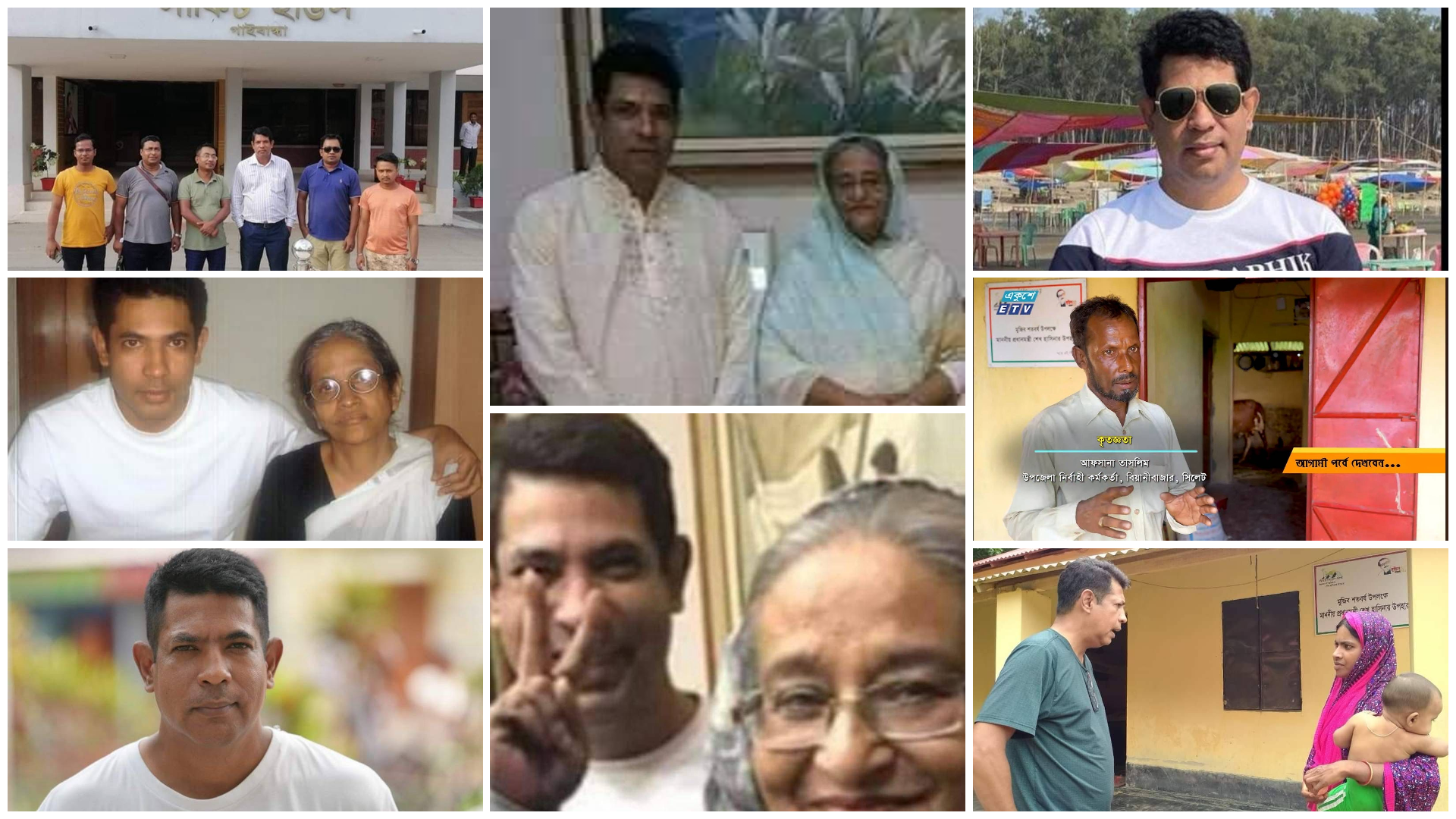
Ovi’s Scandalous Financial Corruption Under Sheikh Hasina’s Shadow
sources claim that only a fraction of the allocated funds was actually spent on these substandard productions.
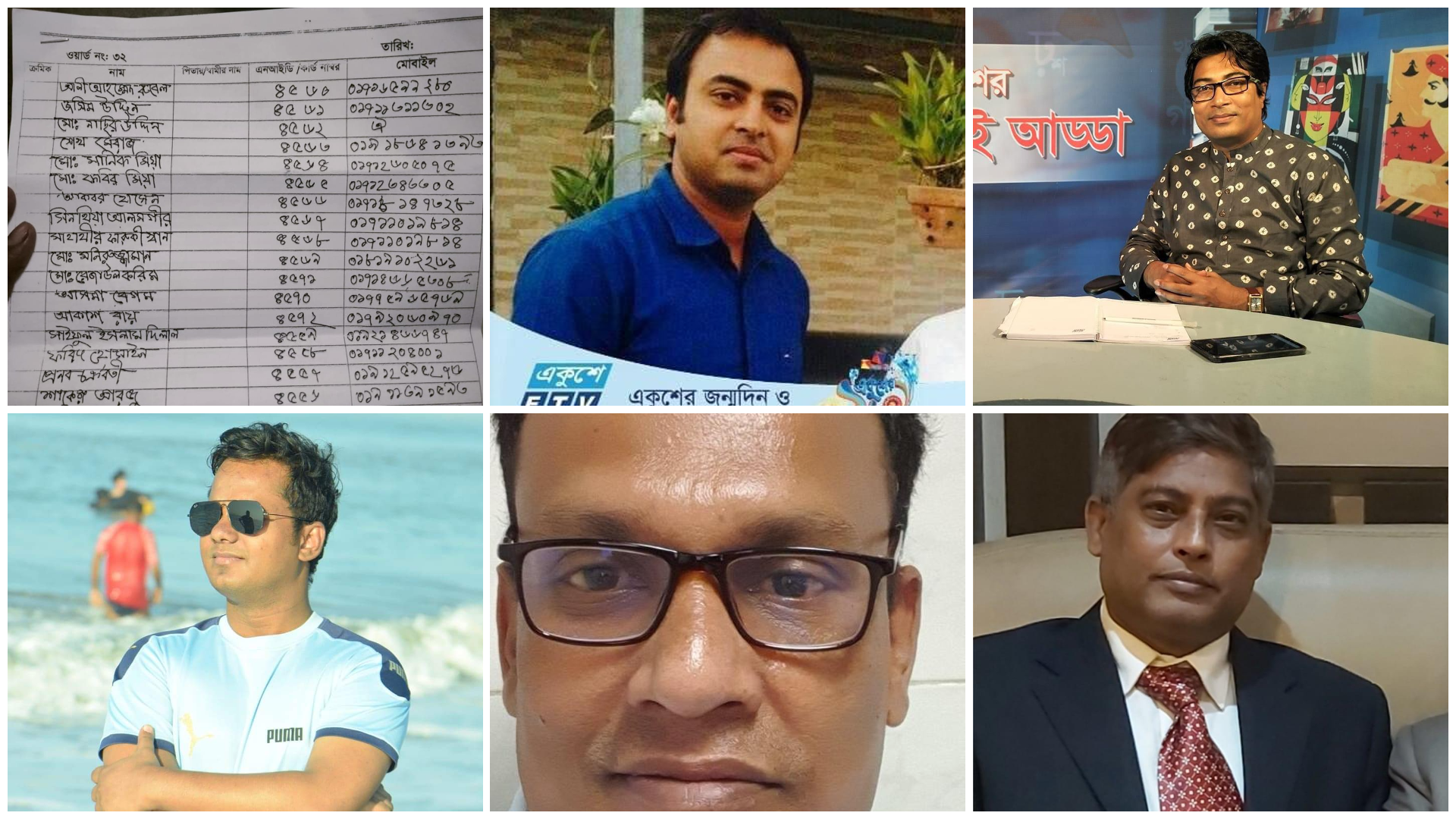
The Dark Chapter of TCB Product Corruption Inside Ekushey Television
This report delves into the shadowy corruption involving TCB goods within Ekushey Television, implicating individuals ranging from senior journalists to office assistants.
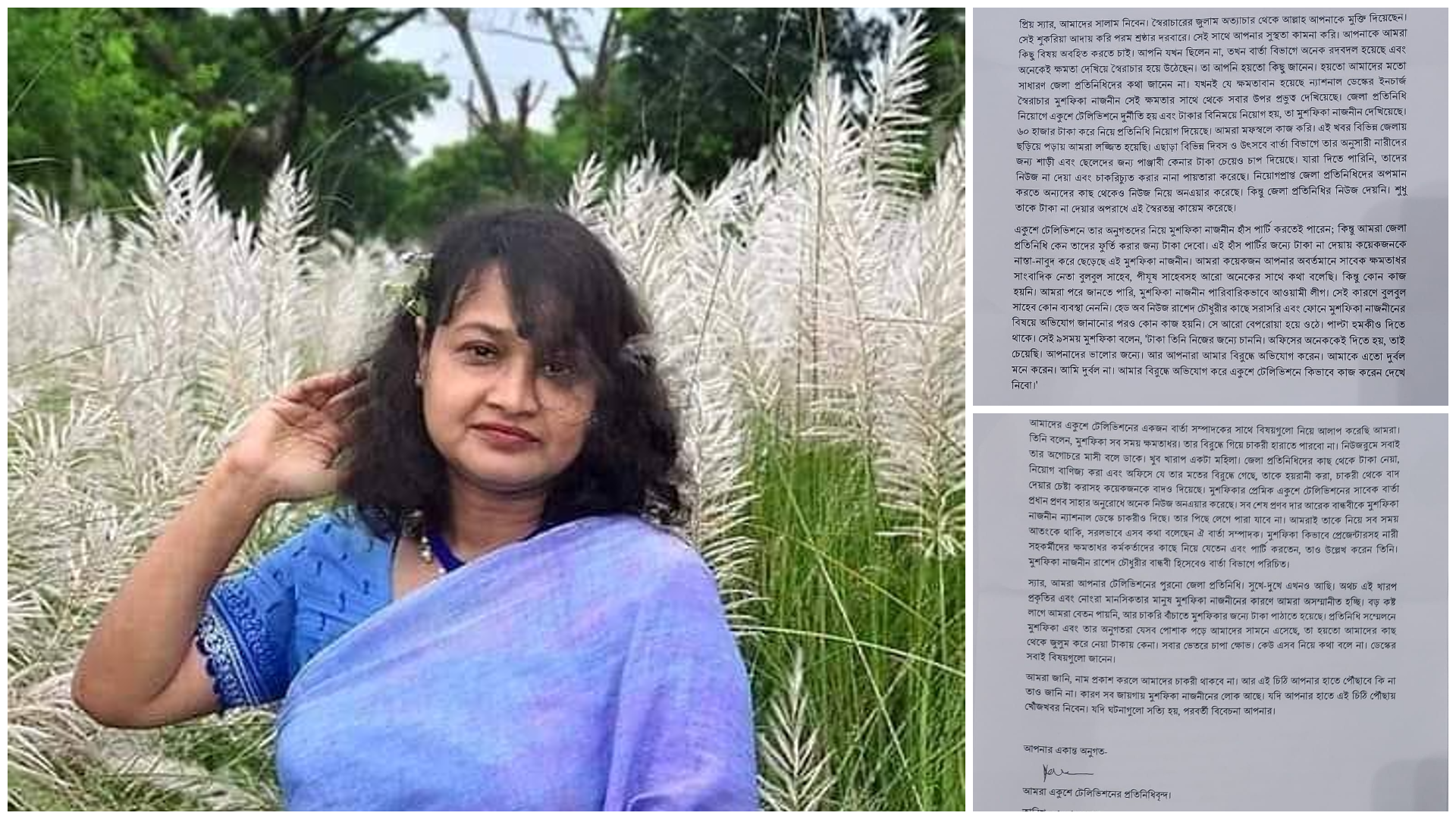
ETV Journalist Leader Allegedly Creates Fear Among Staff
The allegations against Ahmed Mushfiq Nazneen raise serious concerns about workplace ethics and organizational integrity within ETV.



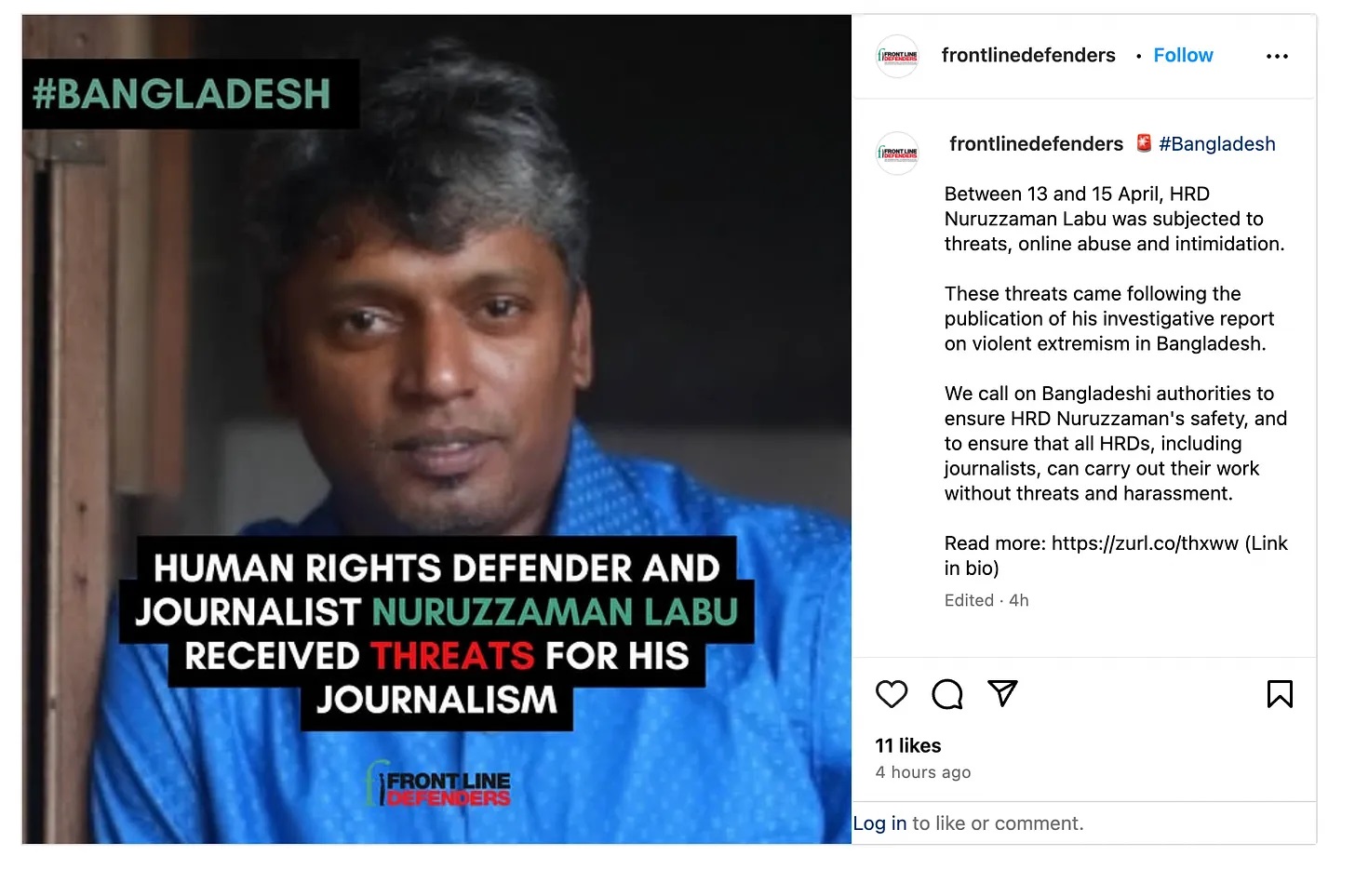
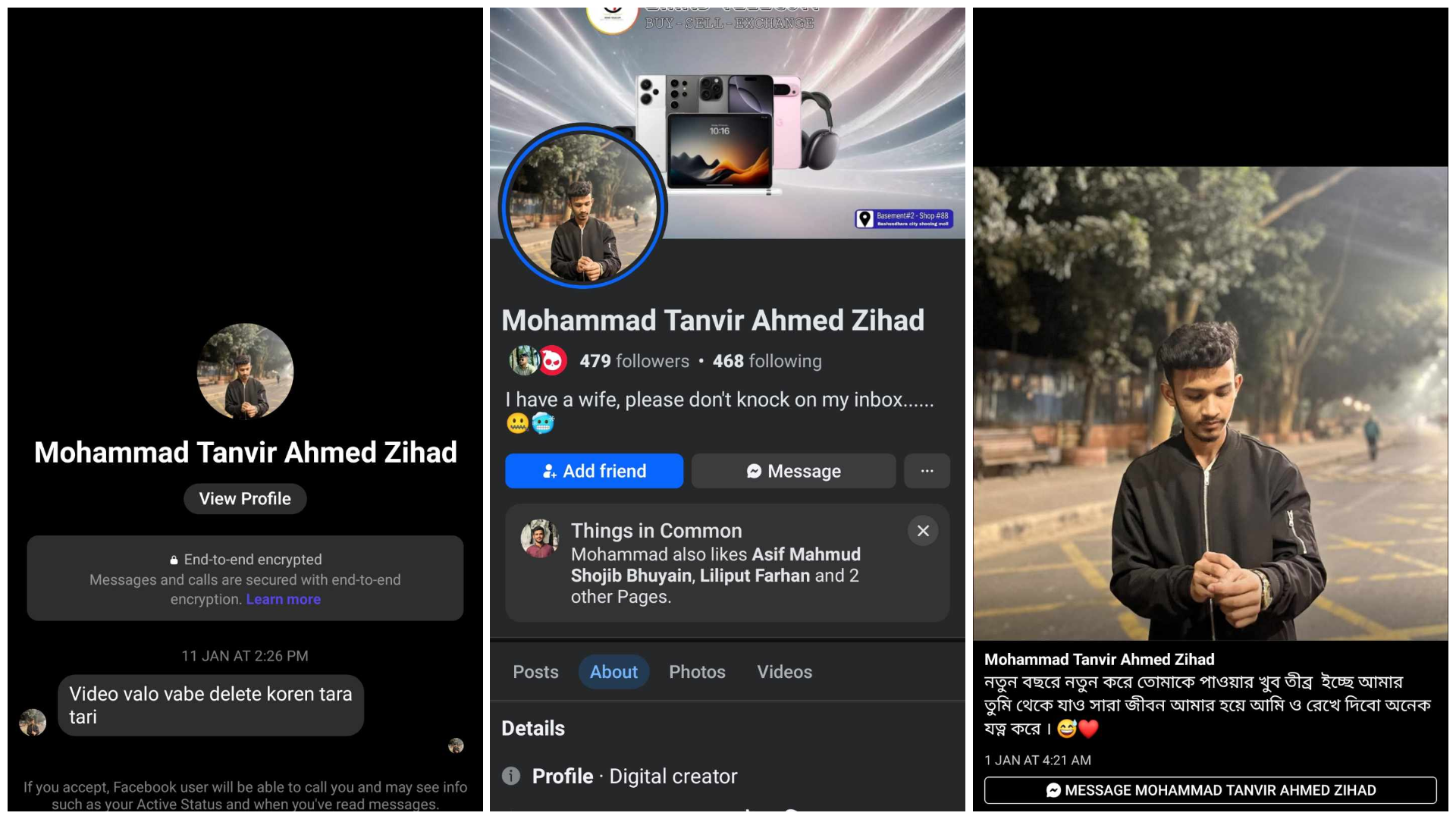
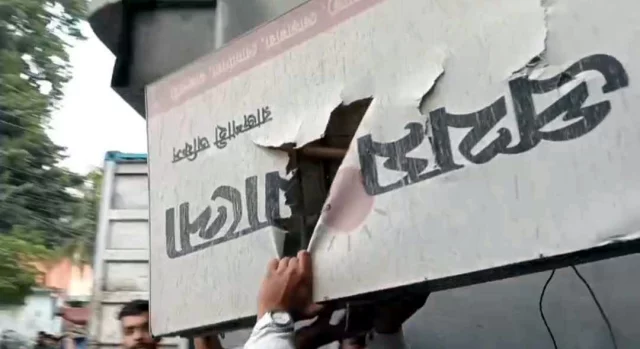
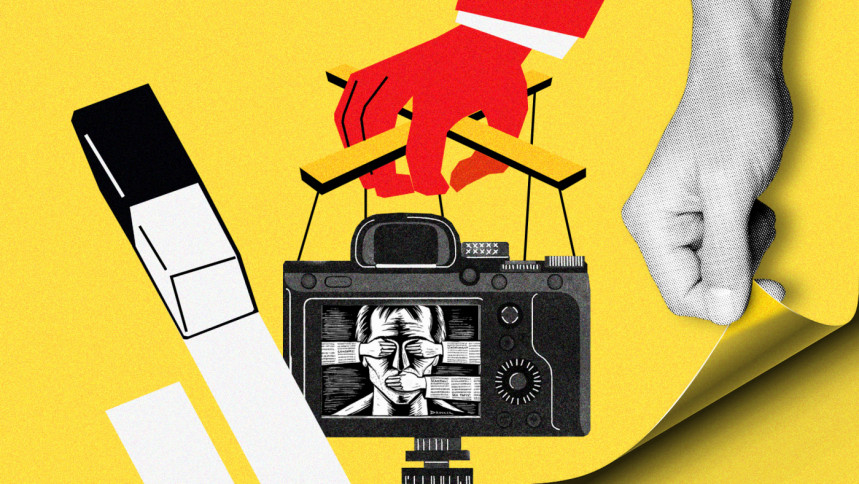
Two Comments